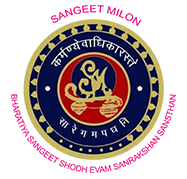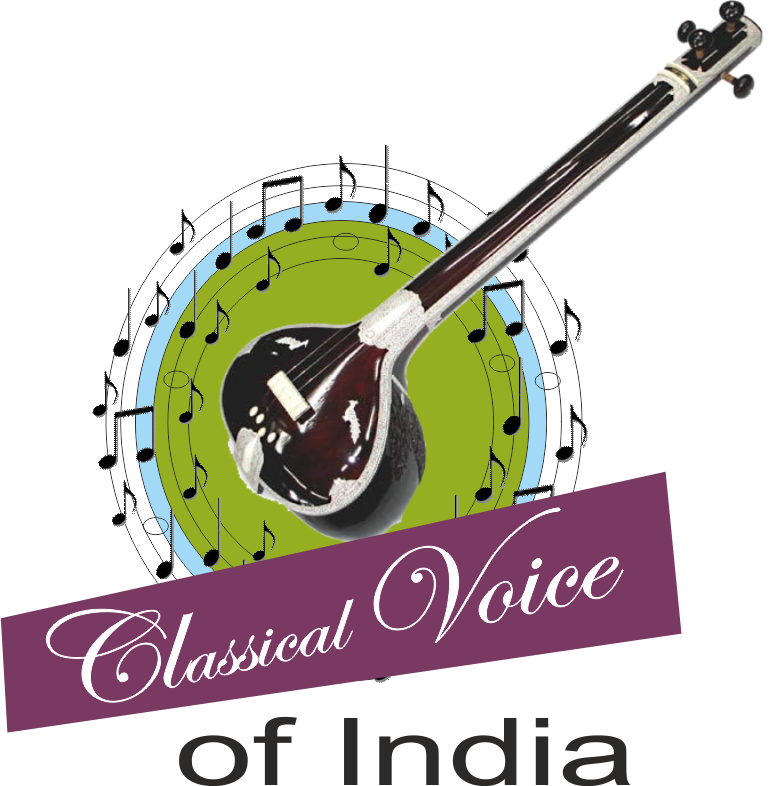I am indeed very grateful to Sangeet Milon for giving me an opportunity to pen down my memories of enlightening days at the Pt. V.N. Bhatkhande Music College of Lucknow. I am tempted to travel back in time to the early fifties , when I was fortunate to have been transferred to Lucknow during my service with LIC which gave me an opportunity , with much spare time, to seriously learn music. I was already taking initial lessons in music in Mumbai during very little spare time at my disposal after day long service with Oriental Assurance Company.
I had heard a lot about the Maris College of Hindustani Music at Lucknow established by Pt. V.N. V.N. Bhatkhande. But this was a God’s given gift to me to be in Lucknow for a period of nine years . This opportunity gave a meaningful matrix and an enduring momentum to my persuit of music.
When one talks of the past musical glory of Lucknow, and of the fine old refined culture of a bygone era, many of the personalities closely associated with the Pt. V.N. Bhatkhande College come floating before one’s vision. Though the years in fifties reflected change in the social and cultural attitude in general, as compared to the early twentieth century, even then those were not perhaps days of material affluence for musicians. The celebrity musicians during those days were content with modest remuneration offered to them. They were deeply absorbed in their art and had no time to waste for politicking. Those were the days when the artistes and their coterie of disciples and admirers had all the time in the world to enjoy full night sessions and private mehfils of music and dance to their heart’s content. The great Ustads and Pandits of that era used to visit Pt. V.N. Bhatkhandeji and revered Guruvarya Acharya Ratanjankarji, known to us as Annasaheb, in their humble, little room in the college, enjoying the simple and warm hospitality of the hosts. They used to have lively and fruitful discussions on music and many great visiting musicians gave inspiring demonstrations for the staff-students and some distinguished music lovers of the city. This was all narrated to us by revered Annasaheb and Natusaheb. Myself and my contemporaries who were students of the college in those nineteen fifties and sixties were really fortunate to have got those opportunities to listen and touch the feet of some of the great celebrated artistes who had become legends in their own lifetime. But gradually, the powerful winds of change began to blow and materialistic age was silently creeping in. The last brief flashes of the flames of the musical genius of Lucknow began to fade out.
Pt. V.N. Bhatkhande and Pt. Vishnu Digambar Paluskar are regarded as two pioneers who were responsible for the renaissance and efflorescence of our classical music in the early 20th century. They sacrificed their entire life-time with determination and vision of uplifting the art and science of music and establishing the social status and prestige of the musicians and the music itself. Pt. V.N. Bhatkhandeji’s incessant efforts to consolidate and systematise Hindustani music had resulted in establishing Maris College of Hindustani Music at Lucknow in 1926. Here he evolved a method of effective, systematic training in Hindustani Music which gained tumultuous approval among the intelligentsia and also in musicians’ circle. His multi faceted task of installing the art of music in its rightful place in the cultural academic and social life of the country was deeply regarded as incomparable contribution in the annuls of History of Indian Music.
The training in the Music College was a collective learning (generally we were five or six students in a batch) interspersed with individual attention. In practical classes any consultation of books by the students were strictly forbidden. Apart from regular teaching in class the Gurus were also available for individual guidance to aspiring students. In fact it was more like a Gurukul ashram where Sadhana and the quest for musical knowledge and beauty of art were always welcome. In that congenial environment I was totally absorbed in extensive learning and practice with revision. Another big advantage was that we had many opportunities to accompany other musicians on the tanpura and provide vocal support. This widened our outlook and gave us indepth experience and in the process developed our knowledge in music all around.
Many illustrious performers and musicologists emerged from Lucknow and carried the message of Pt. V.N. Bhatkhandeji all over India. But his milestone of achievement was truly nurtured and really brought into life by his close disciples revered Guruvarya Pt. Shreekrishna Narayan Ratanjankar and Guruvarya Pt. Govind Narayan Natu.
They had inherited from their Gurus three great gifts—a vast treasure of music, an insatiable thirst for knowledge and an undying passion for tireless work. They imparted true music to innumerable aspirants and inspired them with an intense zeal for music.
My life long discipleship with revered Guruvarya Pt. S.N. Ratanjankar, Pt. G.N. Natu and Pt. K.G. Ginde is my greatest treasure. My Gurus were verily like sages of yore. It will never be possible for me to gauge their greatness. I have memories of enlightening lessons in music from them and innumerable recitals and demonstrations which revealed different sides of their genius.
I have heard many great musicians with a feeling of deference and hold them in very high regard. But for me Guruvarya Annasaheb Ratanjankar , Natusaheb and Ginde sahib stand unequalled.
After all these long years in music, I have realised the validity of the age-long postulate that this Nada-Vidya is limitless and unfathomable. To us at our level it is revealed through flashes and glimpses which become part of our experience and enrich our vision.
One basic rule to be followed is , place your full faith in your Guru and the knowledge gained from him. At the same time, take care that you do not fall victim to the idea that your version of raga or composition is the only correct one, and that anything different from it is wrong. Try to listen carefully to many other learned musicians from varied backgrounds. Diversity and variety are intrinsic to the human mind. Under the canopy of a common lore of ragas and compositions, there is ample scope for individual imagination. A well groomed musician can create beautiful new ideas and give rise to emotional appeal with a new angle and emphasis in the process of elaboration. All art in its ultimate and highest level is individual self expression. Music after all is an art which is man made and is constantly progressive. It is like a river in which the flow of water takes its own course, conditioned by ups and downs and angles and corners on its way, and due to these, with greater or lesser force.
Prof. Pt. Yashwant Mahale
Mumbai


